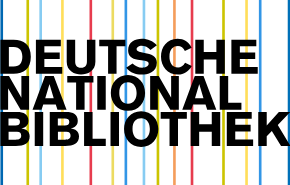THE ROLE OF PUBLIC PARTICIPATION IN ENSURING TRANSPARENCY OF PARLIAMENTARY OVERSIGHT IN UZBEKISTAN: LEGAL GAPS AND INTERNATIONAL PRACTICE
DOI:
https://doi.org/10.55640/Keywords:
Parliamentary Oversight, Transparency, Legal Framework, Accountability, Oliy Majlis, Closed Sessions, Civil Society, Comparative Analysis, Institutional Reform, UzbekistanAbstract
This article critically evaluates the organizational and legal architecture underpinning transparency and openness in parliamentary oversight system in Uzbekistan. The article analyzes the practical implementation of existing relevant laws and regulations, identifies legal organizational limitations, and evaluates alignment with global standards. By applying a comparative legal analysis, it highlights potential deficiencies in public access, procedural ambiguities, and legal discretion surrounding closed sessions. The article concludes with evidence-based proposals for legal reform, emphasizing the need for institutional accountability, regulatory clarity, and the formalized inclusion of civil society actors.
References
1.Constitution of Uzbekistan (1992, amended in 2023).
2.Law on Parliamentary Oversight of the Republic of Uzbekistan, No. 429, dated 3 April 2017.
3.Constitutional Law on the Legislative Chamber of the Oliy Majlis, No. 439-II, dated 12 December 2002 (amended in 2022).
4.Constitutional Law on the Senate of the Oliy Majlis, No. 472-II, dated 28 August 2003 (amended in 2022).
5.Regulations on the Legislative Chamber and the Senate, No. 29-I, dated 6 May 2005 (updated in 2021).
6.Law on Transparency of State Authority and Administration, No. 369, dated 5 May 2014.
7.German Bundestag Rules of Procedure, Section 14(1), 2022.
8.House of Commons Procedure and Practice, Section 118, Canada, 2017.
9.Freedom of Information Act, Section 19, United Kingdom, 2000.
10.Government in the Sunshine Act, Section 3, United States, 1976.
11.Public Access to Information and Secrecy Act, Section 4, Sweden, 2009:400.
12.Constitution of South Africa, Section 59(1)(a), 1996.
13.Standing Orders of the House of Representatives, Standing Order 203, New Zealand, 1996.
14.Senate Procedural Orders and Guidelines, Section 13, Australia, 2015.
15.Title 31 of the United States Code (U.S.C.), Section 712, 2011.
16.Treaty on the Functioning of the European Union (TFEU), Article 15, 2009.
17.Regulation (EC) No 1049/2001, Article 9, 2001.
18.Bovens, M. (2007). “Analysing and Assessing Accountability”. European Law Journal, 13(4), 447–468.
19.Khasanov, O. (2016). The Importance of the Parliament Control Institute in the Development of Political System. International Journal of Development Research, 6(12), 10366–10370.
20.Yusupov, K. (2021). Parliamentary Oversight: Key Findings and Conclusions. JournalNX, 7(12), 173–176.
21.OECD (2021). Lobbying in the 21st Century: Transparency, Integrity and Access. OECD Publishing. Available at: https://www.oecd.org/en/publications/lobbying-in-the-21st-century_c6d8eff8-en.html
Downloads
Published
Issue
Section
License

This work is licensed under a Creative Commons Attribution 4.0 International License.
Authors retain the copyright of their manuscripts, and all Open Access articles are disseminated under the terms of the Creative Commons Attribution License 4.0 (CC-BY), which licenses unrestricted use, distribution, and reproduction in any medium, provided that the original work is appropriately cited. The use of general descriptive names, trade names, trademarks, and so forth in this publication, even if not specifically identified, does not imply that these names are not protected by the relevant laws and regulations.







